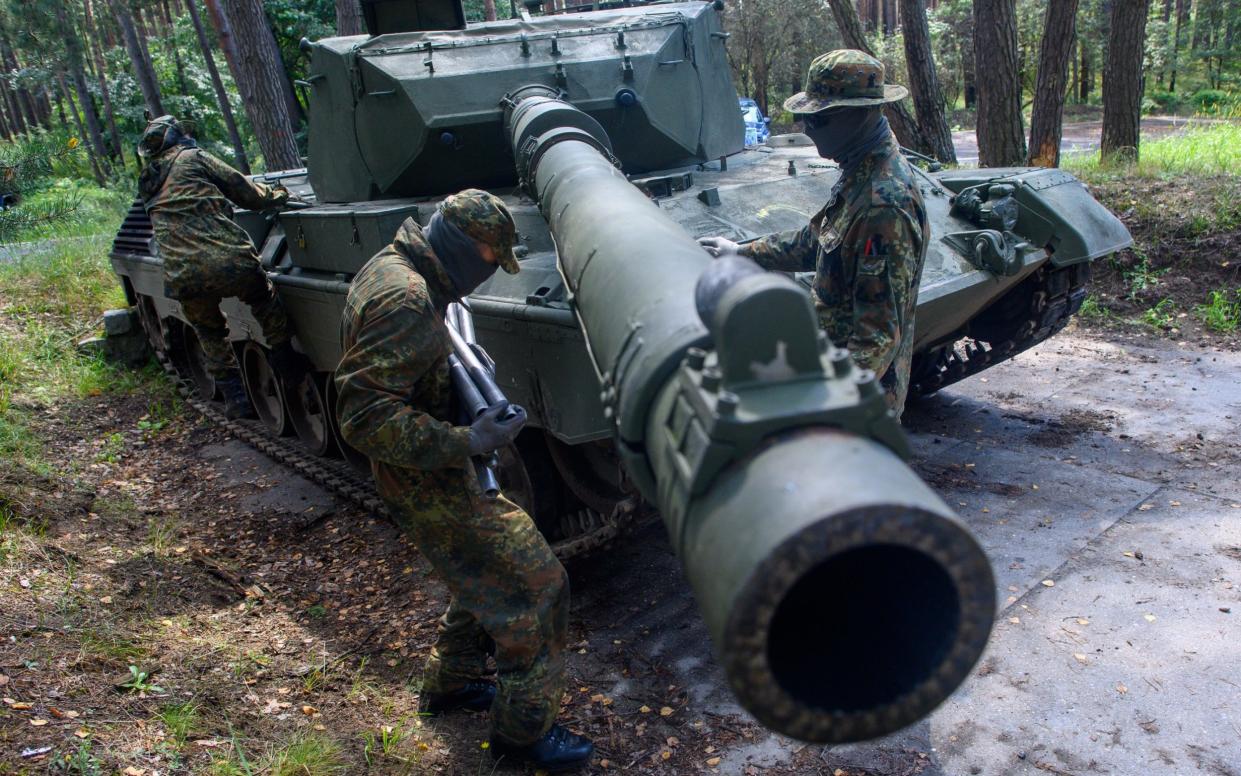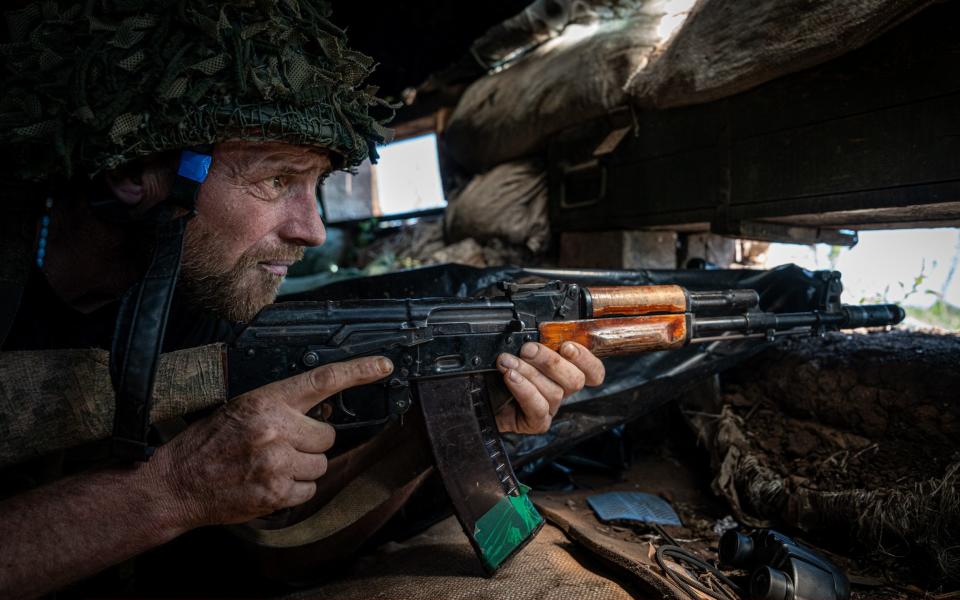Ukraine likely to fail in key counter-offensive aim, says US intelligence

Ukraine’s counter-offensive will likely fail in its key objective to cut Russia’s land bridge to Crimea this year, according to a US intelligence assessment briefed to members of Congress.
Instead, Ukraine’s attack is expected to stop some way short of the key city of Melitopol, the Washington Post reported, citing anonymous officials familiar with the assessment.
The reported assessment, which The Telegraph could not immediately verify, could foreshadow mutual recriminations between members of the pro-Ukraine alliance over the offensive’s slow progress.
Ukraine launched a long-planned counter-offensive in June. Its main objective was to reach the sea of Azov and sever Russia’s land bridge to the annexed Black Sea Crimean peninsula.

Ukraine and its allies hoped newly supplied Western equipment such as Leopard tanks and Bradley fighting vehicles would help achieve a breakthrough.
But the assault immediately ran into stronger than anticipated Russian resistance and has struggled to make progress.
In an effort to reduce losses, analysts said Ukraine has now switched back to the strategy of smaller assaults and strikes on supply lines that eventually led to success in the southern Kherson region last year.
Melitopol, about 50 miles south of the current front line, is often called the “gateway” to Crimea and sits astride two roads and a railway controlling access to the peninsula.
To reach it, the Ukrainians would have to puncture three layers of reinforced defensive lines and minefields, and bypass or capture several heavily fortified towns and villages en route.
Playing down tensions
In public, Ukrainian and Western officials generally seek to play down tensions over the slow progress of the fighting.
Dmytro Kuleba, the Ukrainian foreign minister, said on Thursday that Ukraine does not feel under pressure from Western allies to deliver quicker results.
But mutual recriminations have begun.
Volodymyr Zelensky, the president of Ukraine, said in July that the operation was originally planned for spring but delayed for months because of insufficient weapons systems and munitions.
That delay in turn gave the Russians time to dig in and sow minefields, he said.
Other critics have accused Western governments of hypocrisy for expecting Ukraine to achieve a combined-arms-style breakthrough without air superiority or long-range precision missiles to hit supply lines, minimum requirements for any similar Nato operation.
No ‘panaceas’
US and other Western officials have denied decisions on arms supplies have hampered the offensive.
A senior official in Joe Biden’s administration told the Washington Post the main issue remains piercing the Russian defensive lines and that there was “no evidence” F-16 fighters or longer-range missile systems such as ATACMS would have been a “panacea” to that problem.
Late last month, a German military intelligence report blamed slow progress on Ukraine’s generals splitting Western-trained brigades into small units to assault objectives, which it said negated advantages in force and firepower.
It said an “operational doctrine” particularly entrenched in senior officers with combat experience meant Nato training was not being put into practice.
The Biden administration gave the green light to European countries to provide F16 fighters and associated training to Ukrainian pilots and crews in May, following months of Ukrainian lobbying.
The United States on Friday formally assured Denmark and the Netherlands that it would give permission for F-16s to be exported to Ukraine when training is complete, but that is not expected to be until early next year.
It has so far rebuffed Ukrainian requests for ATACMS precision missiles.

 Yahoo News
Yahoo News 
